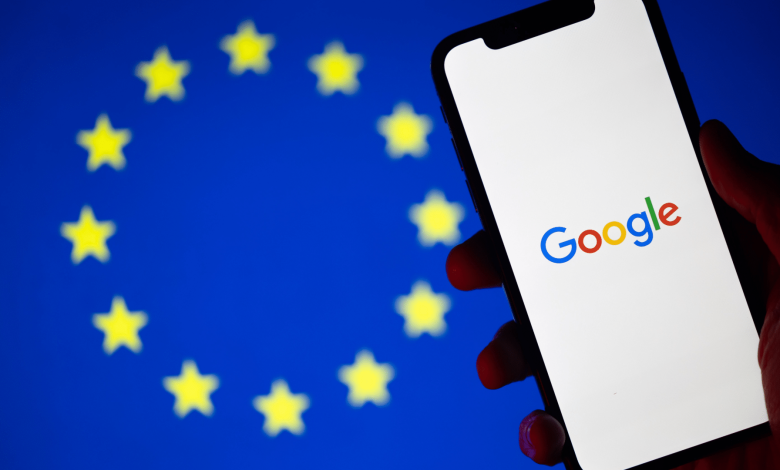How the Digital Markets Act is Transforming Search and Challenging Google’s Monopoly in Europe

The Digital Markets Act (DMA) was introduced to transform the digital environment in Europe. This EU legislation seeks to enhance competition, prevent monopolistic practices, and ensure digital markets are more fair and accessible.
To grasp its importance, it is necessary to understand how Google became a dominant player in the search industry and the impact of its dominance on the market.
How Google Became a Search Monopoly
Google’s path to dominance started in the late 1990s. In 1999, it was a search engine that enabled users to easily find new brands. Its algorithms delivered faster, more relevant results compared to other search engines at the time, quickly becoming the preferred platform for web users worldwide.
By the early 2000s, Google had revolutionized access to information for individuals and businesses. The advent of search engine optimization (SEO) further boosted this transformation. Companies across the globe began investing heavily in SEO to ensure their services and products were prominently featured on Google. This focus on SEO solidified Google’s status as the key player in the search ecosystem.
As Google’s search platform expanded, it introduced its services, such as Google Flights, Google Shopping, and Google Hotels. Initially, these services offered users extra convenience but eventually enabled Google to prioritize its own offerings over those of competitors.
By the mid-2010s, Google had achieved nearly complete market control, with over 90% of global search traffic managed through its platform. This remarkable accomplishment, however, raised significant concerns.
As Google increasingly favored its own products in search results, competition diminished. Travel startups and shopping comparison websites faced substantial declines in traffic as Google prominently placed its own services at the top of search results.
A European Commission report highlighted this, noting that Google’s practices reduced traffic to rival comparison services by up to 85% in the UK, 92% in Germany, and 40% in France. This extensive control across various digital sectors gave Google immense power, which, critics argue, hindered competition, innovation, and consumer choice.
The Digital Markets Act
In reaction to Google’s dominance, the European Union decided to act. Following years of legal struggles and fines, the EU enacted the DMA, which took effect in 2024. The DMA’s goal is to prevent large online platforms, identified as "gatekeepers" such as Google, from abusing their market influence.
The DMA introduces several pivotal rules aimed at reinvigorating competition and curtailing monopolistic behaviors:
-
“No preferencing” rule: This rule stops gatekeepers from favoring their own services in search results. For instance, Google can no longer prioritize Google Flights or Google Hotels over other services in the same category.
- Severe penalties for non-compliance: Companies breaching the DMA risk heavy fines, up to 10% of their global annual revenue, with additional penalties for repeated offenses. Considering Google’s size, this could amount to billions in fines.
The DMA also addresses other practices, like service bundling, unfair access to data, and restrictions on app developers using the platform. It strives to create a level playing field, providing smaller companies a fair chance to compete.
While Google has expressed willingness to comply, given its vast operations, full compliance will necessitate substantial changes. It’s yet to be seen if these changes will substantially reduce Google’s dominance or merely create new challenges for competitors.
Why This Matters for SEOs
Since the DMA took effect, noticeable impacts on Google’s search results have been observed, especially in the travel sector, heavily dominated by Google’s services. Noteworthy shifts in search engine results pages (SERPs) for travel-related keywords have occurred in several European countries, including Italy and Germany.
Collaboration with seoClarity provided significant insights into the changes in search results for over 1.5 million keywords in Italy and Germany. For example, Italian users searching for travel or hotel information now often see comparison features at the top of the SERP, presenting results from diverse services rather than Google’s own.
Data from a study of 150,000 travel-related keywords in Italy revealed that comparison features show up in 81% of searches within the top three positions, indicating Google’s compliance with the no-preferencing rule in this sector.
Similar shifts are apparent in Germany, where for hotel bookings, Google Hotels, which dominated the top position, is now frequently ranked second or lower, with third-party comparison tools appearing prominently.
This development is advantageous for competitors who struggled to rank against Google’s services. However, Google’s compliance isn’t homogeneous. In some cases, like flight searches, Google’s services still dominate, indicating that full DMA compliance is ongoing. Nonetheless, these early changes clearly demonstrate the DMA’s influence on the presentation of search results in Europe.
Key Takeaways for SEOs and Businesses
The changing search landscape post-DMA compliance offers critical insights for businesses and SEOs aiming to refine their strategies.
Experiment with SERP Features
With comparison features becoming more prominent, SEOs should optimize for these snippets, understanding how query shortcuts function and adjusting content to fit these formats.
Monitor and Report Non-compliance
Despite the DMA’s efforts to ensure fair competition, there may still be instances where Google’s search results favor its services. Businesses should remain watchful and report non-compliance to the appropriate regulatory bodies.
Stay Agile and Keep Testing
As the search landscape evolves rapidly, businesses must continuously experiment with different optimization techniques, leveraging new SERP features and adapting to algorithms favoring comparison tools and third-party services over Google’s offerings.



